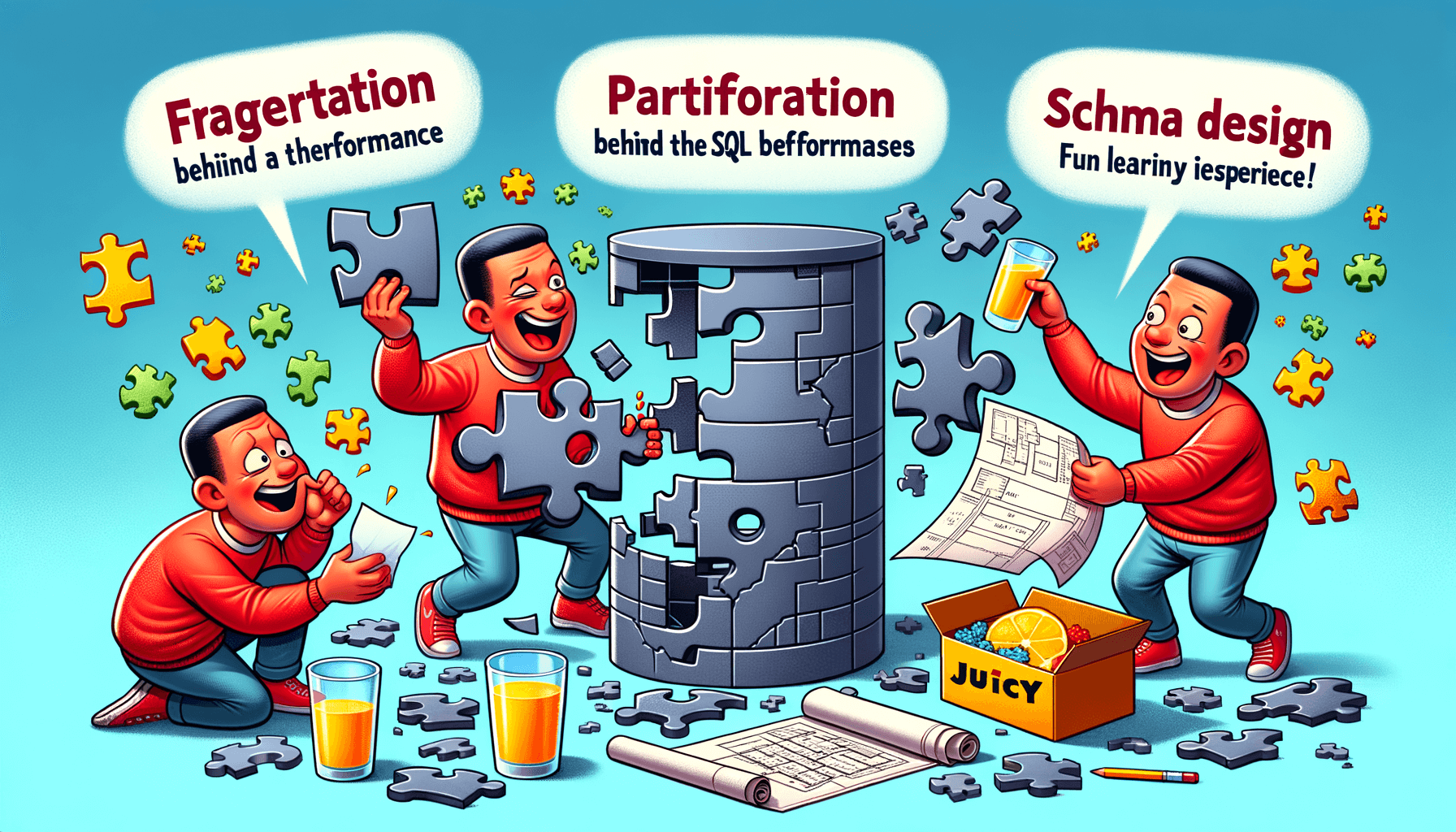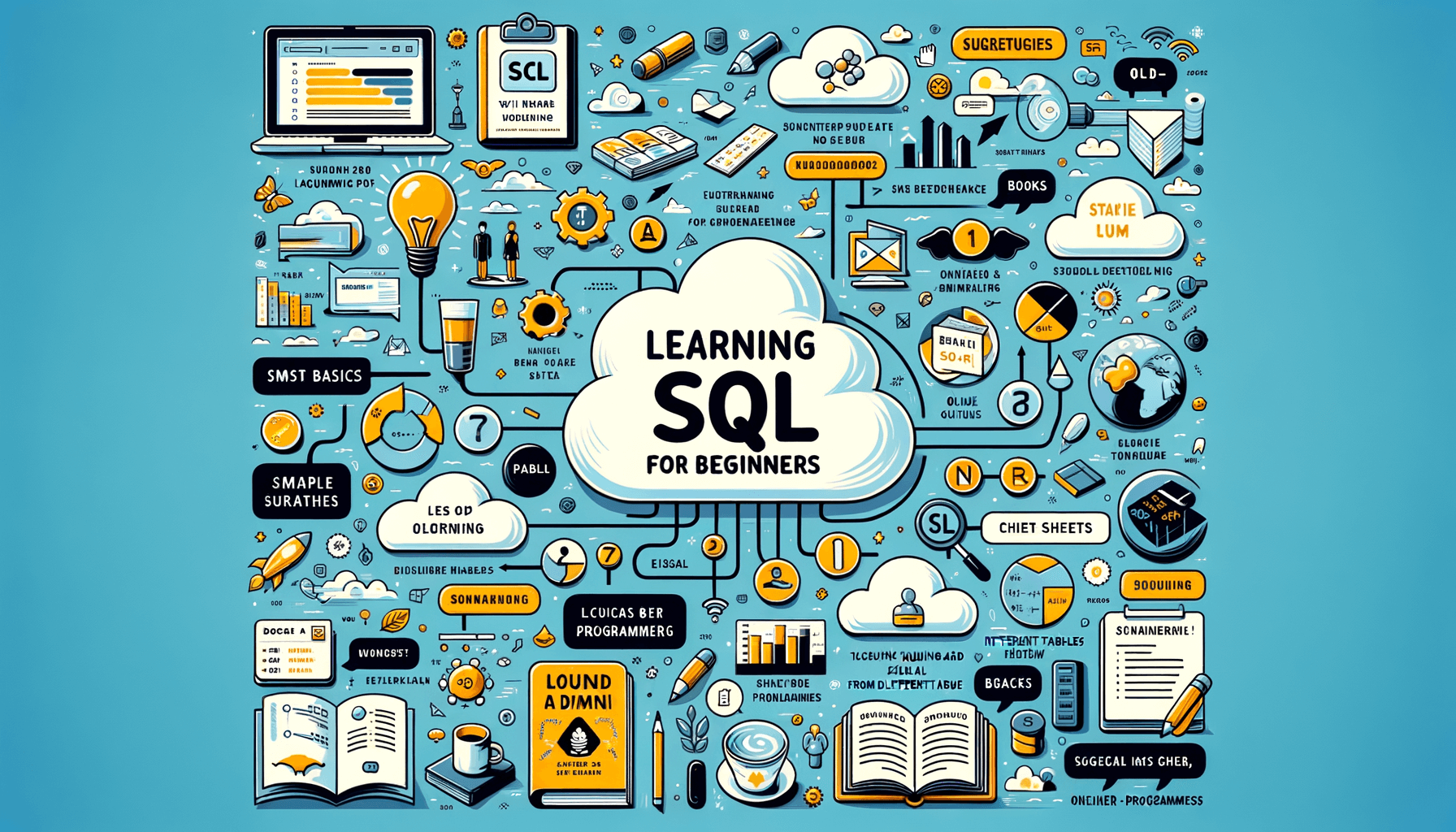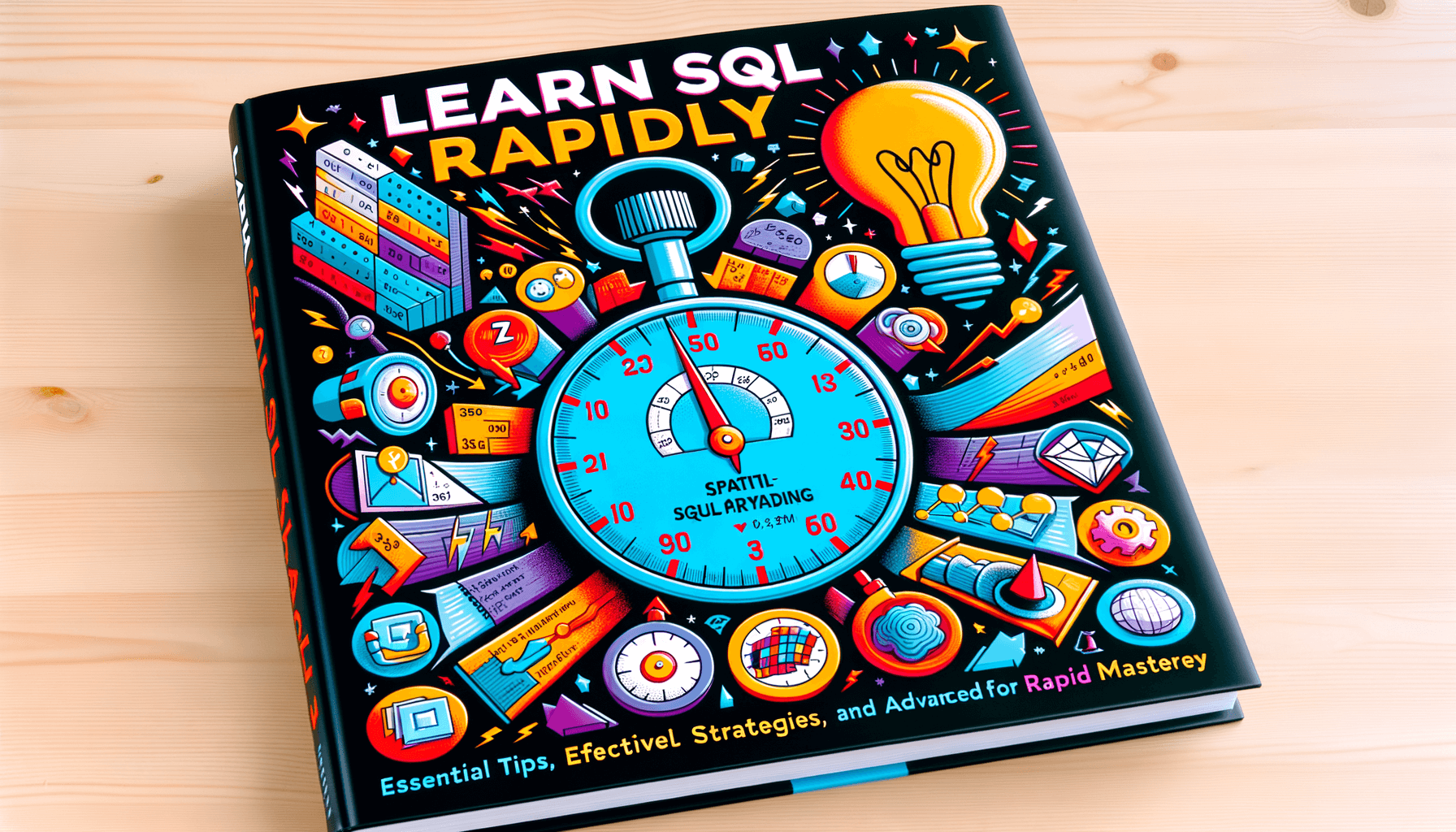A big variety of articles and resources

How Difficult Is SQL to Learn? A Comprehensive Guide
 Sia Author and Instructor
Learn SQL
Sia Author and Instructor
Learn SQL
8 minute read
SQL, or Structured Query Language, is the language used to talk to and manage databases. It's a key skill in many tech jobs, but how hard is it to learn? This guide will help you understand what SQL is, the things that can make it tough to learn, and tips to make learning easier. We'll also look at how SQL stacks up against other programming languages and why learning SQL can be good for your future.
Key Takeaways
- SQL is the language used to manage and talk to databases.
- Your past experience with programming can affect how hard SQL is to learn.
- There are many online resources that can help you learn SQL.
- Practicing by doing and joining SQL communities can make learning easier.
- Knowing SQL can help you in many jobs, like data analysis and web development.
Understanding the Basics of SQL
Defining SQL and Its Purpose
SQL, or Structured Query Language, is a tool we use to talk to databases. It helps us get, change, and manage data stored in a database. SQL is like a bridge between us and the data we need.
Core Components of SQL
SQL has a few main parts that we need to know. These include:
- SELECT: This helps us pick the data we want.
- INSERT: This lets us add new data.
- UPDATE: This changes the data we already have.
- DELETE: This removes data we don't need anymore.
Common Uses of SQL in Various Industries
SQL is used in many fields. For example, in retail, it helps track sales and stock. In healthcare, it keeps patient records organized. In finance, it manages transactions and accounts. No matter the industry, SQL helps us make sense of data and use it well.
With SQL, we can fit data & SQL skills into your busy life with micro-courses. Master SQL basics, perfect for beginners, learn at your own pace. No credit card required. Login or sign up to start learning.
Factors Influencing the Difficulty of Learning SQL
Prior Programming Experience
Our previous experience with programming can greatly affect how hard it is to learn SQL. If we already know other programming languages, we might find SQL easier to pick up. However, if we're new to coding, SQL might seem more challenging at first.
Complexity of SQL Syntax
The syntax of SQL can be tricky. While some commands are simple, others can be quite complex. Understanding the different commands and how to use them correctly is key to mastering SQL. This complexity can make learning SQL a bit tough for beginners.
Availability of Learning Resources
The resources available for learning SQL can also impact how difficult it is to learn. There are many online tutorials and courses, like those on sqlskillz.com and udemy.com, that can help us learn at our own pace. Having access to good resources can make the learning process easier.
The difficulty of learning SQL can vary based on our background, the complexity of the syntax, and the resources we have available. By understanding these factors, we can better prepare ourselves for the learning journey.
Comparing SQL with Other Programming Languages
SQL vs. Procedural Languages
When we compare SQL to procedural languages like Python or Java, we notice some key differences. Procedural languages follow a sequence of steps to achieve a result, while SQL is more about declaring what we want from the database. This makes SQL more intuitive for querying data but less flexible for complex logic.
SQL vs. Object-Oriented Languages
Object-oriented languages, such as C++ or Java, focus on objects and their interactions. SQL, on the other hand, deals with tables and relations. This difference means that while object-oriented languages are great for building applications, SQL excels in managing and querying data. Understanding these distinctions can help us choose the right tool for the task at hand.
SQL in the Context of Data Query Languages
SQL stands out among data query languages due to its widespread use and powerful capabilities. While there are other query languages like NoSQL for non-relational databases, SQL remains the go-to for relational databases. Its structured approach and robust features make it indispensable for data management and analysis.
In summary, SQL's unique strengths lie in its simplicity for data queries and its powerful features for managing relational databases. This makes it a valuable skill in various fields, from data analysis to web development.
Effective Strategies for Learning SQL
Learning SQL can be a rewarding journey for us. We can enhance our skills by utilizing online tutorials and courses. Engaging in hands-on practice is crucial for mastering SQL concepts. Joining SQL communities and forums can provide valuable support and insights. By following these strategies, we can improve our SQL proficiency and become proficient in database management and data analysis.
Common Challenges Faced by SQL Learners
Learning SQL can be tough, especially when it comes to grasping the concept of relational databases. We often struggle with creating complex SQL queries that require a deep understanding of database structures. Additionally, troubleshooting SQL code errors can be a daunting task for beginners. Despite these challenges, mastering SQL opens up a world of opportunities for data analysis, database management, and web development.
Assessing the Practical Applications of SQL Skills
SQL in Data Analysis and Reporting
SQL is a powerful tool for data analysis and reporting. It allows us to extract meaningful insights from large datasets. By writing queries, we can filter, sort, and summarize data to create comprehensive reports. This skill is essential for making data-driven decisions in various fields.
SQL for Database Management
Managing databases efficiently is another key application of SQL. We use SQL to create, update, and delete database records. This ensures that the data remains accurate and up-to-date. Additionally, SQL helps in maintaining the database structure, which is crucial for the smooth operation of any data-driven system.
SQL in Web Development
In web development, SQL plays a vital role in handling the backend data. It allows us to interact with the database to store and retrieve user information. This is particularly important for dynamic websites where data changes frequently. Mastering SQL can significantly enhance our web development skills.
Gaining practical SQL skills with real-world problems, hands-on projects, and expert-led training requires effort for success.
Evaluating the Long-Term Benefits of Learning SQL
Learning SQL can lead to significant advantages in our careers and problem-solving abilities. By mastering SQL, we can open doors to new opportunities and enhance our skills in handling data. Understanding SQL not only helps in managing databases but also improves our adaptability in a world driven by data. Acquiring SQL skills can pave the way for career growth, sharpen our critical thinking, and make us more versatile in a data-centric environment.
Learning SQL can open many doors for your future. It’s a skill that can help you get better jobs and understand data more easily. If you want to learn SQL, we have the perfect courses for you. Our expert team is ready to help you every step of the way. Visit our website to find the right course for you and start your journey today!
Conclusion
Learning SQL can seem hard at first, but with practice, it gets easier. This guide has shown that SQL is a powerful tool for managing data. By breaking down the steps and practicing regularly, anyone can learn SQL. Remember, the key is to start with the basics and build up your skills over time. With patience and effort, you will be able to use SQL to solve real-world problems. Keep practicing, and don't be afraid to ask for help when you need it. Happy learning!
Frequently Asked Questions
What is SQL and why is it important?
SQL stands for Structured Query Language. It's used to talk to databases and get information from them. This is important for jobs like data analysis, web development, and managing databases.
Do I need to know other programming languages before learning SQL?
No, you don't need to know other programming languages before learning SQL. However, knowing some basics about programming can make it easier to learn.
Is SQL harder to learn than other programming languages?
SQL is different from other programming languages because it focuses on managing data. Some people find it easier, while others may find it harder. It really depends on your background and what you are used to.
What are the best ways to practice SQL?
The best ways to practice SQL are by using online tutorials, taking courses, and working on real projects. Joining SQL communities and forums can also help you learn from others.
What are some common problems people face when learning SQL?
Some common problems include understanding how databases work, writing complex SQL queries, and fixing errors in the code. Practice and asking for help can make these problems easier to solve.
How can learning SQL help my career?
Learning SQL can open up many job opportunities. It is useful for careers in data analysis, database management, and web development. Knowing SQL can also make you better at solving problems and working with data.
Related Articles

3 Juicy Secrets Behind Sluggish SQL!!
5 minute read

Can I learn SQL without any programming knowledge?
12 minute read

How to Learn SQL Fast: Tips and Tricks for Rapid Mastery
9 minute read




